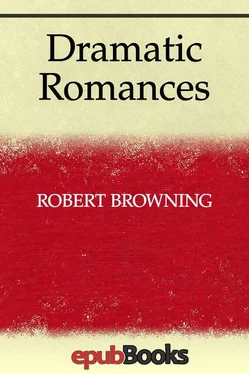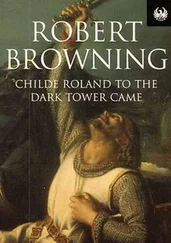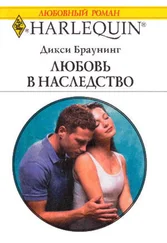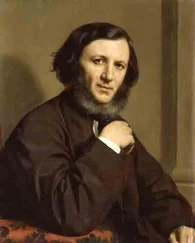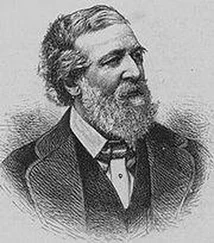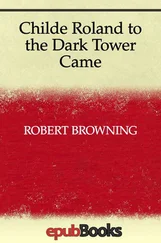Роберт Браунинг - Dramatic Romances
Здесь есть возможность читать онлайн «Роберт Браунинг - Dramatic Romances» весь текст электронной книги совершенно бесплатно (целиком полную версию без сокращений). В некоторых случаях можно слушать аудио, скачать через торрент в формате fb2 и присутствует краткое содержание. Год выпуска: 2014, Издательство: epubBooks Classics, Жанр: Поэзия, на английском языке. Описание произведения, (предисловие) а так же отзывы посетителей доступны на портале библиотеки ЛибКат.
- Название:Dramatic Romances
- Автор:
- Издательство:epubBooks Classics
- Жанр:
- Год:2014
- ISBN:нет данных
- Рейтинг книги:3 / 5. Голосов: 1
-
Избранное:Добавить в избранное
- Отзывы:
-
Ваша оценка:
- 60
- 1
- 2
- 3
- 4
- 5
Dramatic Romances: краткое содержание, описание и аннотация
Предлагаем к чтению аннотацию, описание, краткое содержание или предисловие (зависит от того, что написал сам автор книги «Dramatic Romances»). Если вы не нашли необходимую информацию о книге — напишите в комментариях, мы постараемся отыскать её.
Dramatic Romances — читать онлайн бесплатно полную книгу (весь текст) целиком
Ниже представлен текст книги, разбитый по страницам. Система сохранения места последней прочитанной страницы, позволяет с удобством читать онлайн бесплатно книгу «Dramatic Romances», без необходимости каждый раз заново искать на чём Вы остановились. Поставьте закладку, и сможете в любой момент перейти на страницу, на которой закончили чтение.
Интервал:
Закладка:
XVI
When the liquor's out why clink the cannikin?
I did think to describe you the panic in
The redoubtable breast of our master the mannikin, 790
And what was the pitch of his mother's yellowness,
How she turned as a shark to snap the spare–rib
Clean off, sailors say, from a pearl–diving Carib,
When she heard, what she called the flight of the feloness
—But it seems such child's play,
What they said and did with the lady away!
And to dance on, when we've lost the music,
Always made me—and no doubt makes you—sick.
Nay, to my mind, the world's face looked so stern
As that sweet form disappeared through the postern, 800
She that kept it in constant good humour,
It ought to have stopped; there seemed nothing to do more.
But the world thought otherwise and went on,
And my head's one that its spite was spent on:
Thirty years are fled since that morning,
And with them all my head's adorning.
Nor did the old Duchess die outright,
As you expect, of suppressed spite,
The natural end of every adder
Not suffered to empty its poison–bladder: 810
But she and her son agreed, I take it,
That no one should touch on the story to wake it,
For the wound in the Duke's pride rankled fiery,
So, they made no search and small inquiry—
And when fresh Gipsies have paid us a visit, I've
Notice the couple were never inquisitive,
But told them they're folks the Duke don't want here,
And bade them make haste and cross the frontier.
Brief, the Duchess was gone and the Duke was glad of it,
And the old one was in the young one's stead, 820
And took, in her place, the household's head,
And a blessed time the household had of it!
And were I not, as a man may say, cautious
How I trench, more than needs, on the nauseous,
I could favour you with sundry touches
Of the paint–smutches with which the Duchess
Heightened the mellowness of her cheek's yellowness
(To get on faster) until at last her
Cheek grew to be one master–plaster
Of mucus and fucus from mere use of ceruse: 830
In short, she grew from scalp to udder
Just the object to make you shudder.
XVII
You're my friend—
What a thing friendship is, world without end!
How it gives the heart and soul a stir–up
As if somebody broached you a glorious runlet,
And poured out, all lovelily, sparklingly, sunlit,
Our green Moldavia, the streaky syrup,
Cotnar as old as the time of the Druids—
Friendship may match with that monarch of fluids; 840
Each supples a dry brain, fills you its ins–and–outs,
Gives your life's hour–glass a shake when the thin sand doubts
Whether to run on or stop short, and guarantees
Age is not all made of stark sloth and arrant ease.
I have seen my little lady once more,
Jacynth, the Gipsy, Berold, and the rest of it,
For to me spoke the Duke, as I told you before;
I always wanted to make a clean breast of it:
And now it is made–why, my heart's blood, that went trickle,
Trickle, but anon, in such muddy driblets, 850
Is pumped up brisk now, through the main ventricle,
And genially floats me about the giblets.
I'll tell you what I intend to do:
I must see this fellow his sad life through—
He is our Duke, after all,
And I, as he says, but a serf and thrall.
My father was born here, and I inherit
His fame, a chain he bound his son with;
Could I pay in a lump I should prefer it,
But there's no mine to blow up and get done with: 860
So, I must stay till the end of the chapter.
For, as to our middle–age–manners–adapter,
Be it a thing to be glad on or sorry on,
Some day or other, his head in a morion
And breast in a hauberk, his heels he'll kick up,
Slain by an onslaught fierce of hiccup.
And then, when red doth the sword of our Duke rust,
And its leathern sheath lie o'ergrown with a blue crust,
Then I shall scrape together my earnings;
For, you see, in the churchyard Jacynth reposes, 870
And our children all went the way of the roses:
It's a long lane that knows no turnings.
One needs but little tackle to travel in;
So, just one stout cloak shall I indue:
And for a staff, what beats the javelin
With which his boars my father pinned you?
And then, for a purpose you shall hear presently,
Taking some Cotnar, a tight plump skinful,
I shall go journeying, who but I, pleasantly!
Sorrow is vain and despondency sinful. 880
What's a man's age? He must hurry more, that's all;
Cram in a day, what his youth took a year to hold:
When we mind labour, then only, we're too old—
What age had Methusalem when he begat Saul?
And at last, as its haven some buffeted ship sees,
(Come all the way from the north–parts with sperm oil)
I hope to get safely out of the turmoil
And arrive one day at the land of the Gipsies,
And find my lady, or hear the last news of her
From some old thief and son of Lucifer, 890
His forehead chapleted green with wreathy hop,
Sunburned all over like an AEthiop.
And when my Cotnar begins to operate
And the tongue of the rogue to run at a proper rate,
And our wine–skin, tight once, shows each flaccid dent,
I shall drop in with—as if by accident—
"You never knew, then, how it all ended,
What fortune good or bad attended
The little lady your Queen befriended?"
—And when that's told me, what's remaining? 900
This world's too hard for my explaining.
The same wise judge of matters equine
Who still preferred some slim four–year–old
To the big–boned stock of mighty Berold
And, for strong Cotnar, drank French weak wine,
He also must be such a lady's scorner!
Smooth Jacob still robs homely Esau:
Now up, now down, the world's one see–saw.
—So, I shall find out some snug corner
Under a hedge, like Orson the wood–knight, 910
Turn myself round and bid the world good night;
And sleep a sound sleep till the trumpet blowing
Wakes me (unless priests cheat us laymen)
To a world where will be no further throwing
Pearls before swine that can't value them. Amen!
NOTES:
"The Flight of the Duchess." A story of the triumph of a free and loving life over a cold and conventional one. The duke's huntsman frees his mind to his friend as to his part in the escape of the gladsome, ardent young duchess from the blighting yoke of a husband whose life consisted in imitating defunct mediaeval customs. An old gipsy is the agency that awakens her to the joy and freedom of love. Her mystic chant and charm claim the duchess as the true heir of gipsy blood, thrill her with life, half–hypnotize the huntsman, too, and seem to transform the gipsy crone herself into an Eastern queen. He helps them off, and looks for no better future, when the duke's death releases him, than to travel to the land of the gipsies and hear the last news of his lady.
The poem grew from the fancies aroused in the poet's heart by the snatch of a woman's song he overheard when a boy—"Following the Queen of the Gipsies, O!"
A Grammarian's Funeral,
Shortly After the Revival of Learning in Europe
Let us begin and carry up this corpse,
Singing together.
Leave we the common crofts, the vulgar thorpes
Each in its tether
Sleeping safe on the bosom of the plain,
Cared–for till cock–crow:
Look out if yonder be not day again
Rimming the rock–row!
That's the appropriate country; there, man's thought,
Rarer, intenser, 10
Self–gathered for an outbreak, as it ought,
Chafes in the censer.
Leave we the unlettered plain its herd and crop;
Seek we sepulture
On a tall mountain, citied to the top,
Crowded with culture!
All the peaks soar, but one the rest excels;
Clouds overcome it;
No! Yonder sparkle is the citadel's
Circling its summit. 20
Thither our path lies; wind we up the heights:
Wait ye the warning?
Our low life was the level's and the night's;
He's for the morning.
Step to a tune, square chests, erect each head,
'Ware the beholders!
This is our master, famous calm and dead,
Borne on our shoulders.
Sleep, crop and herd! sleep, darkling thorpe and croft,
Safe from the weather! 30
He, whom we convoy to his grave aloft,
Singing together,
He was a man born with thy face and throat,
Lyric Apollo!
Long he lived nameless: how should spring take note
Winter would follow?
Till lo, the little touch, and youth was gone!
Cramped and diminished,
Moaned he, "New measures, other feet anon!
My dance is finished?" 40
No, that's the world's way: (keep the mountain–side,
Make for the city!)
He knew the signal, and stepped on with pride
Over men's pity;
Left play for work, and grappled with the world
Bent on escaping:
"What's in the scroll," quoth he, "thou keepest furled?
Show me their shaping
Theirs who most studied man, the bard and sage,
Give!"—So, he gowned him, 50
Straight got by heart that book to its last page:
Learned, we found him.
Yea, but we found him bald too, eyes like lead,
Accents uncertain:
"Time to taste life," another would have said,
"Up with the curtain!"
This man said rather, "Actual life comes next?
Patience a moment!
Grant I have mastered learning's crabbed text,
Still there's the comment. 60
Let me know all! Prate not of most or least,
Painful or easy!
Even to the crumbs I'd fain eat up the feast,
Ay, nor feel queasy."
Oh, such a life as he resolved to live,
When he had learned it,
When he had gathered all books had to give!
Sooner, he spurned it.
Image the whole, then execute the parts—
Fancy the fabric 70
Quite, ere you build, ere steel strike fire from quartz,
Ere mortar dab brick!
(Here's the town–gate reached: there's the market–place
Gaping before us.)
Yea, this in him was the peculiar grace
(Hearten our chorus!)
That before living he'd learn how to live—
No end to learning:
Earn the means first–God surely will contrive
Use for our earning. 80
Others mistrust and say, "But time escapes:
Live now or never!"
He said, "What's time? Leave Now for dogs and apes!
Man has Forever."
Back to his book then: deeper drooped his head:
Calculus racked him:
Leaden before, his eyes grew dross of lead:
Tussis attacked him.
"Now, master, take a little rest!"—not he!
(Caution redoubled, 90
Step two abreast, the way winds narrowly!)
Not a whit troubled
Back to his studies, fresher than at first,
Fierce as a dragon
He (soul–hydroptic with a sacred thirst)
Sucked at the flagon.
Oh, if we draw a circle premature,
Heedless of far gain,
Greedy for quick returns of profit, sure
Bad is our bargain! 100
Was it not great? did not he throw on God,
(He loves the burthen)
God's task to make the heavenly period
Perfect the earthen?
Did not he magnify the mind, show clear
Just what it all meant?
He would not discount life, as fools do here,
Paid by instalment.
He ventured neck or nothing–heaven's success
Found, or earth's failure: 110
"Wilt thou trust death or not?" He answered "Yes:
Hence with life's pale lure!"
That low man seeks a little thing to do,
Sees it and does it:
This high man, with a great thing to pursue,
Dies ere he knows it.
That low man goes on adding one to one,
His hundred's soon hit:
This high man, aiming at a million,
Misses an unit. 120
That, has the world here–should he need the next,
Let the world mind him!
This, throws himself on God, and unperplexed
Seeking shall find him.
So, with the throttling hands of death at strife,
Ground he at grammar;
Still, thro' the rattle, parts of speech were rife:
While he could stammer
He settled Hoti's business—let it be!—
Properly based Oun— 130
Gave us the doctrine of the enclitic De,
Dead from the waist down.
Well, here's the platform, here's the proper place:
Hail to your purlieus,
All ye highfliers of the feathered race,
Swallows and curlews!
Here's the top–peak; the multitude below
Live, for they can, there:
This man decided not to Live but Know—
Bury this man there? 140
Here—here's his place, where meteors shoot, clouds form,
Lightnings are loosened,
Stars come and go! Let joy break with the storm,
Peace let the dew send!
Lofty designs must close in like effects:
Loftily Iying,
Leave him—still loftier than the world suspects,
Living and dying.
Интервал:
Закладка:
Похожие книги на «Dramatic Romances»
Представляем Вашему вниманию похожие книги на «Dramatic Romances» списком для выбора. Мы отобрали схожую по названию и смыслу литературу в надежде предоставить читателям больше вариантов отыскать новые, интересные, ещё непрочитанные произведения.
Обсуждение, отзывы о книге «Dramatic Romances» и просто собственные мнения читателей. Оставьте ваши комментарии, напишите, что Вы думаете о произведении, его смысле или главных героях. Укажите что конкретно понравилось, а что нет, и почему Вы так считаете.
